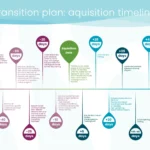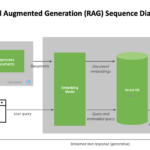Pharmacogenomics is a cutting-edge field that combines pharmacology and genomics to personalize medical treatments based on an individual’s genetic makeup. This emerging discipline is revolutionizing the way we approach medication, enabling more precise and effective treatment plans tailored to each patient’s unique genetic profile. As the importance of personalized medicine grows, obtaining a pharmacogenomics certificate has become increasingly valuable for professionals in the healthcare sector. A certification in pharmacogenomics not only enhances one’s knowledge and skills but also opens up various career opportunities in a rapidly evolving field. In this article, we will explore what pharmacogenomics is, why a certificate is important, the requirements for certification, top programs available, and the benefits of holding such a credential.
What is Pharmacogenomics?
Definition and Scope
Pharmacogenomics is the study of how an individual’s genetic information influences their response to drugs. By analyzing genetic variations, pharmacogenomics aims to predict how a person will metabolize and respond to specific medications. This field is crucial for developing personalized treatment plans that maximize efficacy and minimize adverse effects. The scope of pharmacogenomics extends beyond just identifying drug interactions; it also involves understanding genetic markers that can indicate predispositions to certain conditions or adverse drug reactions. As researchers uncover more about how genes affect drug metabolism, the potential for more tailored and effective treatments increases.
Role in Personalized Medicine
In personalized medicine, treatments are customized based on individual genetic profiles, lifestyle, and environmental factors. Pharmacogenomics plays a pivotal role in this approach by providing insights into how genetic variations affect drug metabolism and efficacy. This ensures that patients receive medications that are not only effective but also have fewer side effects. For example, a pharmacogenomic test might reveal that a patient is likely to experience adverse reactions to a particular drug, prompting healthcare providers to choose an alternative medication. By integrating pharmacogenomics into clinical practice, healthcare professionals can offer more precise and targeted therapies, ultimately improving patient outcomes and safety.
Why Pursue a Pharmacogenomics Certificate?
Career Opportunities
A pharmacogenomics certificate opens up a range of career opportunities in the healthcare and pharmaceutical industries. With a growing emphasis on personalized medicine, professionals with expertise in pharmacogenomics are in high demand. This certification can lead to roles such as pharmacogenomics consultant, genetic counselor, clinical pharmacologist, or pharmaceutical researcher. Additionally, hospitals, research institutions, and pharmaceutical companies are increasingly seeking experts who can interpret genetic data and apply it to drug development and patient care. Earning a certification can significantly enhance job prospects and career advancement in this dynamic field.
Enhancing Professional Skills
Obtaining a pharmacogenomics certificate helps professionals deepen their understanding of genetic factors affecting drug response. This knowledge is crucial for interpreting genetic tests and integrating results into clinical practice. Certified professionals are better equipped to make informed decisions about medication management, thereby improving patient care. The certification process typically involves rigorous training in genetics, pharmacology, and bioinformatics, which enhances analytical and problem-solving skills. These advanced skills are valuable not only in clinical settings but also in research and policy-making roles within the healthcare industry.
Contribution to Better Patient Care
Pharmacogenomics contributes to better patient care by enabling more personalized and effective treatment plans. With a pharmacogenomics certificate, professionals are equipped to analyze genetic data and tailor medication choices to individual patients’ needs. This approach reduces the risk of adverse drug reactions and increases the likelihood of treatment success. By integrating pharmacogenomic insights into clinical practice, healthcare providers can offer more precise and targeted therapies, leading to improved patient outcomes and overall satisfaction. The ability to provide personalized care based on genetic information represents a significant advancement in modern medicine.
Requirements for a Pharmacogenomics Certificate
Educational Prerequisites
To pursue a pharmacogenomics certificate, candidates typically need a background in a relevant field such as biology, medicine, or pharmacology. Most programs require a bachelor’s degree in a related discipline, though some advanced programs may necessitate a master’s degree or higher. A strong foundation in genetics and pharmacology is essential, as these areas form the core of pharmacogenomics. Some programs may also require prior coursework in bioinformatics or statistical analysis, given their importance in interpreting genetic data. Ensuring you meet these educational prerequisites is crucial for successfully completing a certification program.
Relevant Experience
In addition to educational requirements, relevant experience in the healthcare or research field can be beneficial for obtaining a pharmacogenomics certificate. This experience might include working in clinical settings, research laboratories, or pharmaceutical companies. Practical experience helps candidates apply theoretical knowledge to real-world scenarios, enhancing their understanding of pharmacogenomics. Some certification programs may require a certain amount of professional experience or may offer pathways for individuals with a proven track record in related roles. Gaining hands-on experience in genetic testing or personalized medicine can significantly strengthen your application.
Key Competencies and Skills
Successful candidates for a pharmacogenomics certificate should possess several key competencies and skills. These include a thorough understanding of genetic principles, drug metabolism, and bioinformatics. Analytical skills are essential for interpreting complex genetic data and making informed decisions about medication management. Strong problem-solving abilities and attention to detail are also important, as pharmacogenomics involves analyzing and applying detailed genetic information. Additionally, effective communication skills are necessary for explaining genetic findings to patients and collaborating with other healthcare professionals.
Top Programs for Pharmacogenomics Certification
Overview of Popular Certification Programs
Several reputable programs offer pharmacogenomics certification, each with its unique features and focus areas. Programs from institutions such as the American Society of Human Genetics and the University of California offer comprehensive training in pharmacogenomics. These programs typically cover topics such as genetic testing, drug interactions, and personalized medicine strategies. They may also include practical components, such as case studies and hands-on lab work, to provide real-world experience. Choosing a program that aligns with your career goals and interests is essential for maximizing the benefits of certification.
Comparison of Features and Benefits
When selecting a pharmacogenomics certification program, it’s important to compare various features and benefits. Consider factors such as program length, cost, and accreditation status. Some programs may offer online coursework for greater flexibility, while others may require in-person attendance. Additionally, look at the faculty’s expertise and the program’s reputation within the field. Accreditation by a recognized body ensures that the program meets high standards of quality and relevance. Evaluating these factors can help you choose a program that best fits your needs and career aspirations.
How to Choose the Right Program
Factors to Consider
Choosing the right pharmacogenomics certification program involves evaluating several important factors. First, consider the program’s accreditation status to ensure it meets industry standards. Look for programs offered by reputable institutions with a strong track record in pharmacogenomics education. Additionally, assess the curriculum to ensure it covers essential topics such as genetic testing, drug metabolism, and personalized medicine. Program length and cost are also important considerations, as they can impact your time commitment and financial investment. Researching these factors thoroughly will help you make an informed decision.
Tips for Evaluating Program Quality
To evaluate the quality of a pharmacogenomics certification program, start by reviewing the program’s curriculum and faculty qualifications. Look for programs that offer comprehensive training in both theoretical and practical aspects of pharmacogenomics. Additionally, read reviews and testimonials from past students to gauge their experiences and outcomes. Check if the program provides access to resources such as research databases, labs, and professional networks. Finally, consider the program’s support services, such as career counseling and mentorship, which can enhance your learning experience and career development.
What to Expect During the Certification Process
Course Structure and Content
The certification process for pharmacogenomics typically involves a combination of coursework, practical training, and assessments. The course structure usually includes modules on genetic principles, pharmacology, bioinformatics, and personalized medicine. Students may also participate in case studies and lab work to apply their knowledge to real-world scenarios. The content is designed to provide a comprehensive understanding of how genetic information affects drug response and how to use this knowledge in clinical practice. Expect to engage in both theoretical learning and hands-on activities to gain a well-rounded education.
Exam and Assessment Details
Certification programs often include exams and assessments to evaluate students’ understanding and skills. These assessments may consist of written exams, practical assignments, and case studies. The exams typically test knowledge of genetic principles, drug interactions, and personalized medicine strategies. Practical assignments may involve analyzing genetic data and developing personalized treatment plans. Some programs also include a final project or thesis that demonstrates your ability to apply pharmacogenomic concepts in a clinical or research setting. Preparing for these assessments requires a thorough understanding of course materials and practical skills.
Benefits of Having a Pharmacogenomics Certificate
Career Advancement
Holding a pharmacogenomics certificate can significantly advance your career in the healthcare or pharmaceutical industry. This credential demonstrates your expertise in a specialized and growing field, making you a valuable asset to employers. With personalized medicine becoming more prevalent, organizations seek professionals who can interpret genetic data and apply it to drug development and patient care. A certification can lead to roles with increased responsibility, higher salaries, and greater job security. It also positions you as a leader in the field, potentially opening doors to advanced positions and specialized roles.
Improved Job Prospects
A pharmacogenomics certificate enhances your job prospects by validating your skills and knowledge in this emerging field. Employers value candidates who can contribute to personalized medicine initiatives and interpret complex genetic information. With a certification, you can stand out in a competitive job market and access opportunities in various settings, including hospitals, research institutions, and pharmaceutical companies. The growing demand for pharmacogenomics expertise means that certified professionals are likely to have better job prospects and career growth potential.
Enhanced Understanding of Genetic Testing
A pharmacogenomics certificate provides an in-depth understanding of genetic testing and its application in personalized medicine. This knowledge allows you to interpret genetic data accurately and make informed decisions about medication management. By understanding how genetic variations affect drug response, you can contribute to more effective and tailored treatment plans. This expertise not only benefits patients by minimizing
Conclusion
Obtaining a pharmacogenomics certificate represents a significant step forward in the field of personalized medicine. As the healthcare industry increasingly shifts towards more individualized approaches to treatment, expertise in pharmacogenomics becomes ever more valuable. A certification not only enhances your understanding of how genetic factors influence drug response but also opens doors to a variety of career opportunities in both clinical and research settings.











